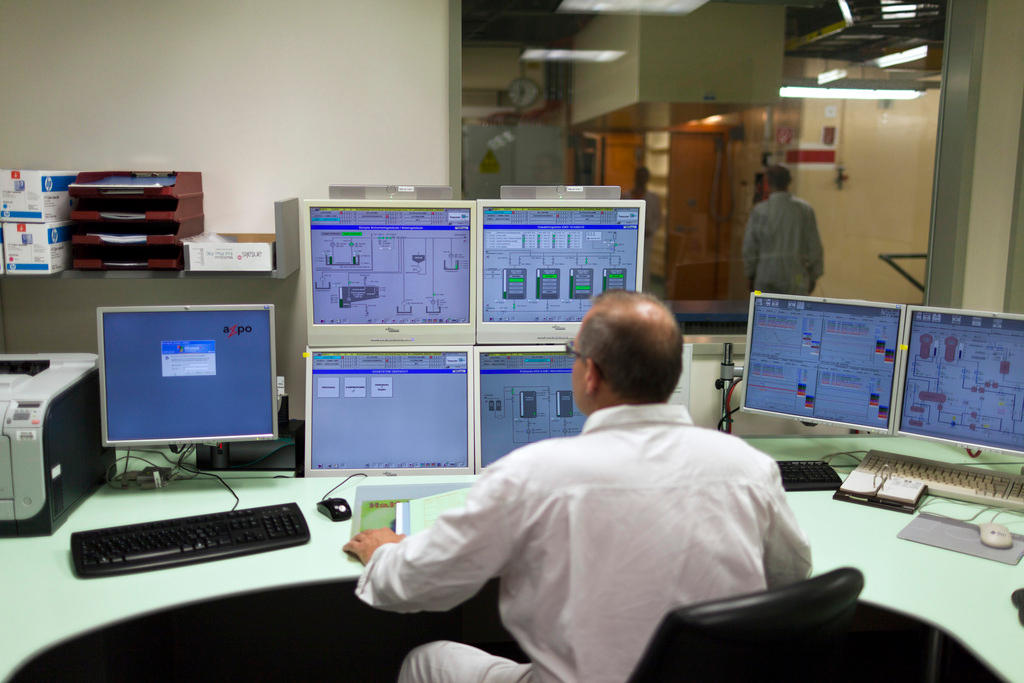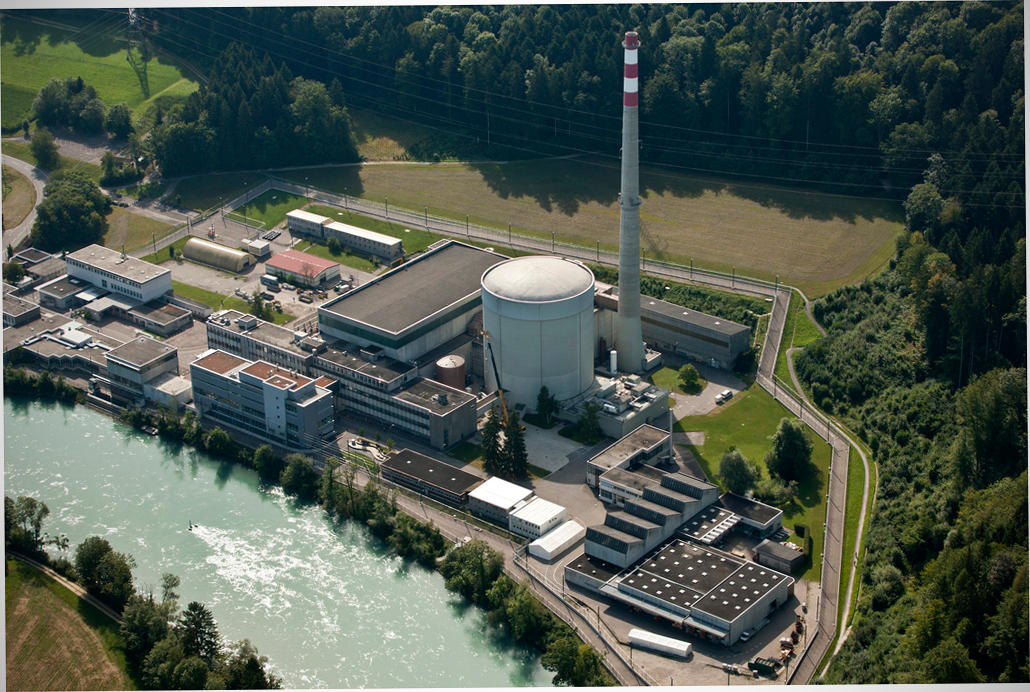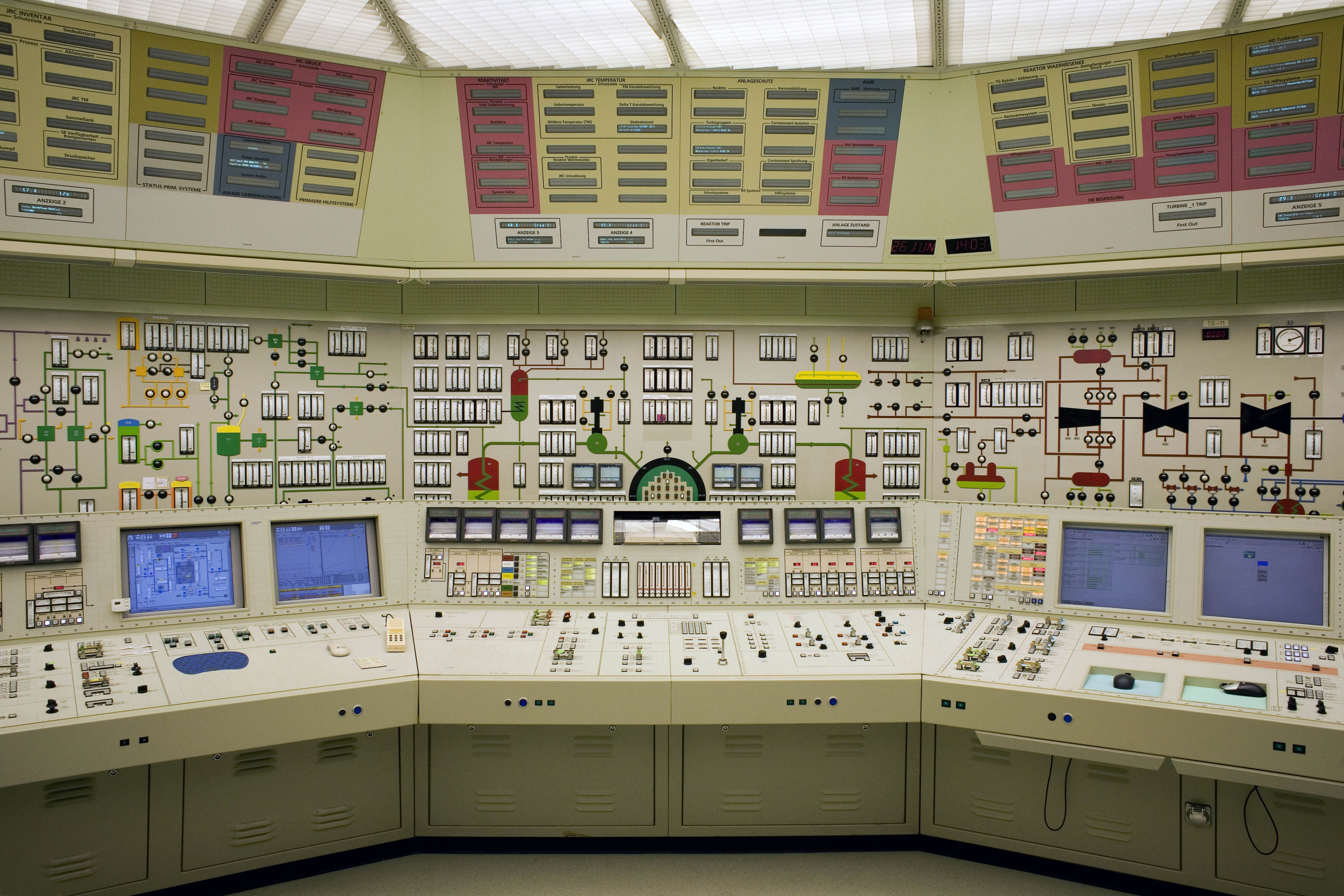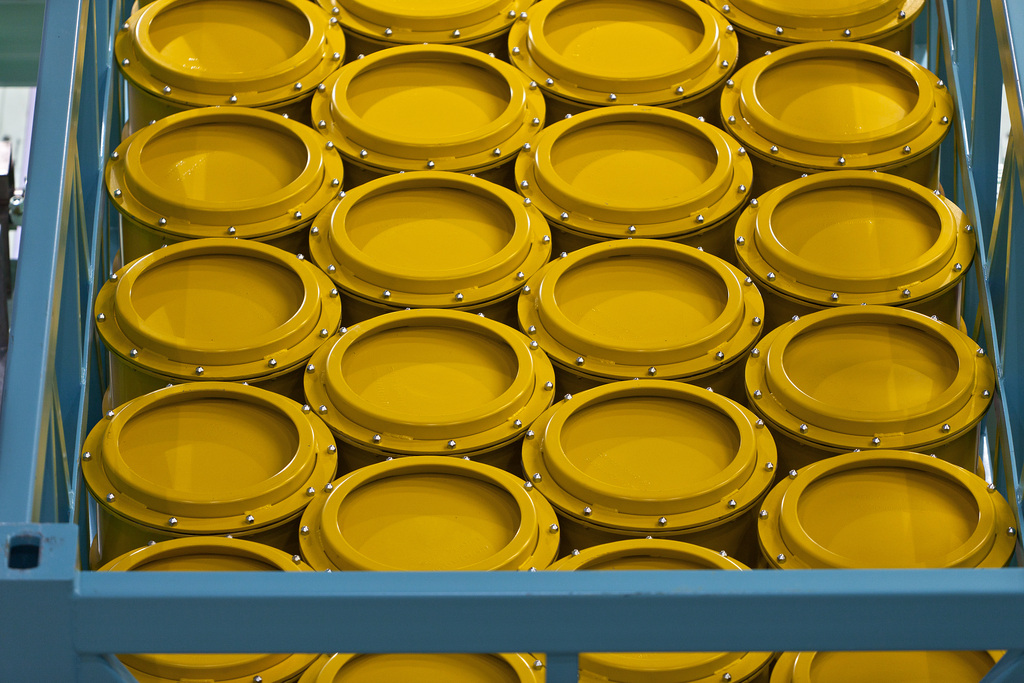Supporters of nuclear initiative lose energy

Will Swiss voters decide on November 27 to decommission the country’s five nuclear power plants? It’s going to be close, according to the latest poll, although experts still think “no” is the most likely outcome.
Some 48% of respondents were in favour of the initiative and 46% were against, with 6% undecided, according to the second survey, carried out by the GfS Bern research institute and commissioned by the Swiss Broadcasting Corporation, swissinfo’s parent company.

However, the opponents of the initiative – who want to keep the stations up and running – have the momentum. They have gained ten points since the previous poll was published at the end of October. Over the same period, the initiative’s supporters have lost nine points.
The pollsters pointed out that this usually happens with initiatives: supporters run out of steam and end up losing.
Concretely, Swiss citizens will be voting to decommission nuclear power plants that have seen 45 years of service. Switzerland’s five nuclear power plants supply on average a third of the country’s electricity and a “yes” vote would mean that the stations Beznau I and II (in canton Aargau) and Mühleberg (Bern) should shut down in 2017, Gösgen (Solothurn) in 2024 and Leibstadt (Aargau) in 2029.
Rejecting on principle
The main opposition is coming from the political right, people in the German-speaking part of the country and rural areas and from those without a university education.
“Many people are simply rejecting the initiative on principle because it was put forward by environmentalists,” said Claude Longchamp, who stepped down as director of GfS Bern earlier this year.
But the pollsters are hedging their bets, unwilling to call the result either way.
“Two things are unusual. On the one hand, voters from the [centre-right] Christian Democratic Party are largely favourable towards the initiative, despite their party being against it. On the other, support for the initiative remains high among the linguistic minorities,” Longchamp explained.
“Bearing in mind those two factors, one should remain very cautious about the final result,” he said, before concluding that rejection was the “most realistic” scenario.
As it is a people’s initiative, it requires a “double majority” – a majority of the people and a majority of the cantons – to pass.
Polling details
Pollsters interviewed 1,400 Swiss citizens from all language regions across the country for the first of two nationwide surveys by the GfS Bern research institute ahead of the November 27 vote.
Swiss expatriates are not included in the poll.
The telephone interviews, both with fixed line and mobile phone users, took place from November 2-9.
The margin of error is 2.7%.
The survey was commissioned by the Swiss Broadcasting Corporation, swissinfo’s parent company, and carried out by the leading GfS Bern research and polling institute.
Translated from French by Thomas Stephens

In compliance with the JTI standards
More: SWI swissinfo.ch certified by the Journalism Trust Initiative













You can find an overview of ongoing debates with our journalists here . Please join us!
If you want to start a conversation about a topic raised in this article or want to report factual errors, email us at english@swissinfo.ch.